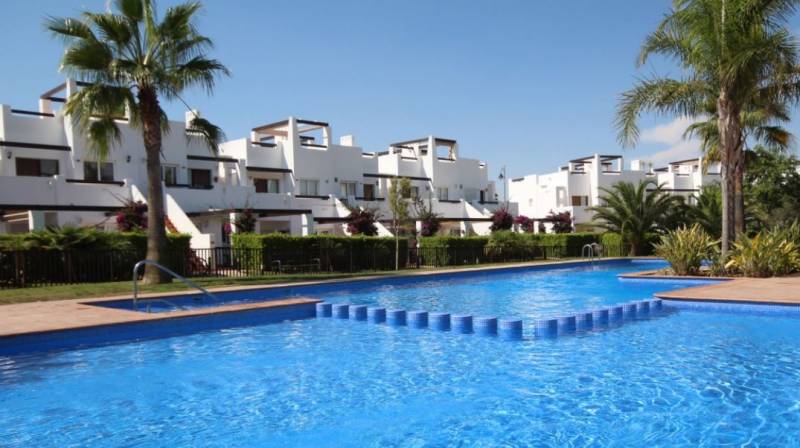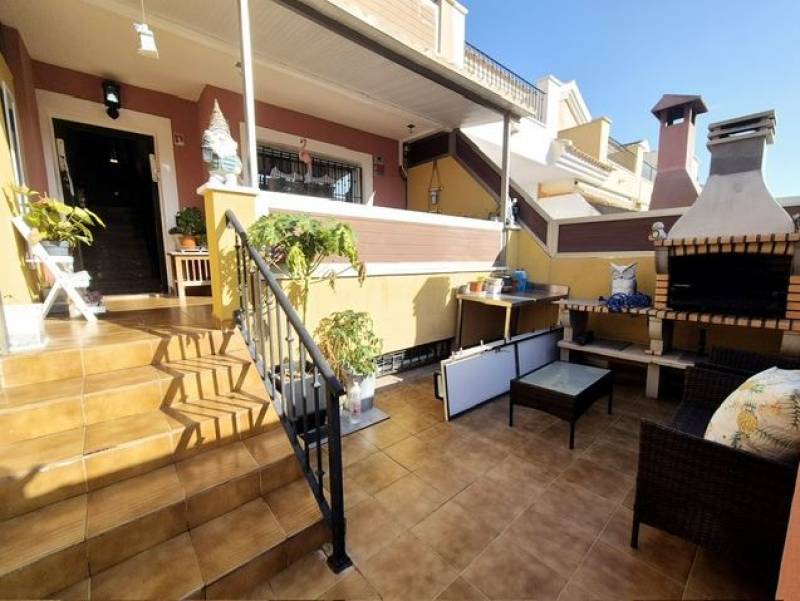Massive tax hikes for non-EU home buyers vs. incentives for foreign investors: The great debate that has all of Spain talking
The key similarities and differences of the competing housing reforms that have divided the political leaders in Spain
The government and the opposition are in agreement on certain fundamental aspects, such as the need for more affordable housing and incentives for owners to rent out their properties. However, they are poles apart on other topics, including tackling squatters (President Pedro Sánchez hasn't even mentioned this issue) and how to regulate tourist accommodation and foreign investment.
For now, here are the main similarities and differences between the housing plans presented by President Sánchez and leader of the PP, Alberto Núñez Feijóo.
1. Public housing
Both the government (PSOE party) and the opposition (PP) are clear that more housing needs to be built in Spain, and especially more social and affordable housing. To achieve this, Feijóo proposes making public land available to the construction sector to build rental flats at fixed prices, up to 30% cheaper than the free market average.
Along the same lines, Sánchez proposes transferring housing and land to the new Public Housing Company to build affordable social rental housing.
In order to build faster, Feijóo advocates eliminating bureaucratic obstacles, which would allow urban planning procedures to be reduced from 9 to 3 months and speed up the construction of housing. On this point, Sánchez has proposed a PERTE for construction, based in Valencia, to promote innovation in the sector and the commitment to modular construction, which allows construction to be carried out in less time and at a lower cost.
The government also wants to protect social housing, guaranteeing by law that any flat built by the State will remain in public ownership indefinitely. The PP is emphasising a more flexible regulatory framework so that more people can access protected housing ownership.
The president is coming under some scrutiny at this point, both from politicians and the general public, since he's waxed lyrical about creating more social housing in the past with little progress to show.
2. More security for owners
Sánchez and Feijóo agree that legal security must be provided to owners who rent out their homes. Along these lines, the President of the Government proposes a system of public guarantees that ensures the collection of rent from owners who participate in affordable rental programmes, a measure that will begin to be applied this year to those who rent out their apartments to people under 35 years of age.
Feijóo is somewhat more ambitious on this point because he proposes the creation of non-payment insurance paid by public administrations to protect all owners who put their empty homes on the market.
3. Squatting
Feijóo focuses on
the problem of squatting and proposes the immediate unblocking of the anti-squatting law to allow rapid evictions of squatters in less than 24 hours. He also advocates making available to victims of squatting a help service and a telephone line for complaints, as well as the creation of a register of squatted houses and permanent connection with local police.
Sánchez, on the other hand, has not made reference to the problem of squatting in any of his 12 announced measures.
4. Tourism
The President of the Government continues to identify tourist apartments as part of the problem and proposes a tightening of regulations, as well as an increase in inspections to pursue fraud with seasonal rentals.
He also believes that tourist apartments should be considered a business and be taxed like any other economic activity.
Feijóo, on the other hand, makes no reference to tourist apartments.
5. Tax cuts and Golden Visas
Now we get to the crux of the issue for foreign buyers, arguably the most important topic for investors from the UK and other non-EU countries but on which the two leaders fundamentally disagree.
Feijóo advocates for reducing the tax rate for non-EU citizens who want to buy a home, making it
more attractive for foreign investment. This approach is aimed at stimulating the housing market and attracting capital from abroad, which the PP believes can help boost the economy and create more opportunities.
In contrast, Sánchez's proposal to increase the tax rate to 100% for non-EU non-resident home buyers is seen by the PP as a deterrent to foreign investment and potentially harmful to the housing market and the broader economy.
From the president's perspective, this 100% tax hike, which would effectively
put a stop to the Golden Visa scheme, will curb property speculation by foreign investors, which he claims is exacerbating the housing crunch.
His proposal aims to discourage non-resident foreigners from buying up properties that they will never live in. According to Sánchez, limiting the influence of speculative buyers will create more housing for permanent residents and reduce upward pressure on prices.
Lawyer Isaac Abad, winner of the Best Lawyer Award 2025 for Conveyancing Law, says this proposed tax is similar to policies in Denmark and Canada, "where non-resident buyers face additional taxes to limit foreign investment in the property market".
To see how the measure would work in practice, he gives the example of a British buyer looking to purchase a property in Murcia for 150,000 euros.
At the current tax rate of approximately 10-12%, the buyer would pay around 15,000-18,000 euros in taxes, but under the new proposed tax rate of 100% of the property's value, the buyer would pay an additional 150,000 euros in taxes, bringing the total cost to 300,000 euros.
"This significant increase would make property purchases prohibitively expensive for most non-EU buyers, essentially doubling the cost of buying a home in Spain," he says
However, Abad also points to the fact that the government could be blocked altogether from passing this measure into law by the constitution: "The Constitutional Court requires that taxes be reasonable and not hinder fundamental rights or legitimate economic activities. Such a measure would violate the principles of proportionality and effective access to fundamental rights. The Constitutional Court has previously ruled that a tax is confiscatory when it imposes an excessive burden on the taxpayer's wealth or income."
6. Price regulation
The government, on the other hand, is committed to price regulation as a means to make housing more affordable. This includes tax exemptions for owners who respect the Reference Price Index and the regulation of rents in stressed areas, as outlined in the new housing law.
7. Aid for home renovation
Both the Government and the opposition are considering aid for the renovation of homes.
The PP proposes making a greater effort in cities with high demand, focusing on areas where the need for renovation is most pressing.
The government's aid for home renovation is conditioned on the owners putting the renovated flat up for rent for at least 5 years, ensuring that the benefits of renovation contribute to the rental market.
8. Public aid
The PP proposes raising the age limit from 35 to 40 for accessing the guarantees of the Official Credit Institute (ICO), allowing young people to take out 100% mortgages.
The measures announced by Sánchez include "increasing the aid programmes currently in force," without going into details, but focusing on "the elderly, young people, people with disabilities and those who live in degraded areas."
While both leaders are in agreement on some important housing matters, there are some glaring differences when it comes to their approaches, particularly with regard to foreign investment. But before panic sets in, it's important to remember that most of these measures, notably the 100% tax hike for non-EU buyers, are still only proposals and need to be approved and enacted through the legislative process to become law.
Until such time, it is very much still possible for non-EU residents to buy property in Spain, just the same as before.
Isaac Abad concludes that the proposed measures "represent a challenge for British buyers", but underscores that "with careful
legal guidance and planning, it is still possible to invest securely in Spain."
For more information on the legal and financial aspects of purchasing property in Spain, you can contact Abad Abogados using the details below:
article_detail

|




 be able to undertake official paperwork in Spain, to completing your residency and visa requirements, they are there to ease every step of the move to Spain for people wanting to come and live in the country.
be able to undertake official paperwork in Spain, to completing your residency and visa requirements, they are there to ease every step of the move to Spain for people wanting to come and live in the country.























